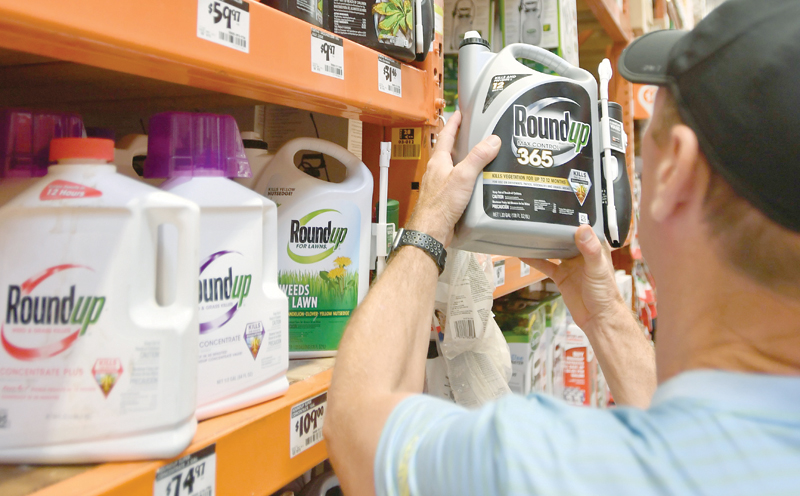

San Francisco: Monsanto has been ordered to pay some $80 million to an American retiree who blames his cancer on the agribusiness giant’s weedkiller Roundup, in a case that could influence the outcome of thousands more like it.
A San Francisco jury on Wednesday found the firm, which is owned by Bayer, had been “negligent by not using reasonable care” to warn of the risks of its product, ordering it to pay Edwin Hardeman $75 million in punitive damages, a little over $5 million in compensation and $200,000 for medical expenses.
It was the second stinging legal verdict for Monsanto in recent months after it lost a case to a California school groundskeeper suffering from terminal non-Hodgkin’s lymphoma and was ordered to pay out tens of millions of dollars. The jury also found that Roundup’s design was defective and that the product lacked sufficient warnings of potential risk.
The same jury had previously found in an earlier part of the trial that a quarter century exposure to Roundup, whose principal ingredient is controversial chemical glyphosate, was a “substantial factor” in giving the 70-year-old Hardeman non-Hodgkin’s lymphoma.
The decision also marks a major setback for Bayer, which purchased Monsanto in June 2018 for $63 billion.
In Frankfurt on Thursday, Bayer’s share price fell 1.14 per cent to 55.69 euros by 0830 GMT — extending losses as Bayer has seen its market value shrink by 46 per cent since it bought Monsanto. The company, which is facing thousands more similar lawsuits in the United States, said it would appeal the verdict even though it sympathised with Hardeman’s plight.
“We are disappointed with the jury’s decision, but this verdict does not change the weight of over four decades of extensive science and the conclusions of regulators worldwide that support the safety of our glyphosate-based herbicides and that they are not carcinogenic,” Bayer said in a statement.
“The verdict in this trial has no impact on future cases and trials, as each one has its own factual and legal circumstances.” — AFP
Oman Observer is now on the WhatsApp channel. Click here



